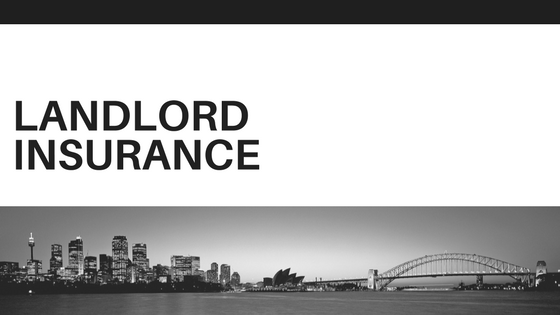The Basics of Landlord Insurance
If you own rental property, or are planning on it in the future, being familiar with various insurance options is important to keep in mind.
Like all matters related to insurance, there are requirements and there are options that provide more protection and peace of mind.
With over 500 people in the U.S. becoming landlords every day, there is most certainly an insurance market that will fit the needs of any rental property and property owner.
Landlord insurance is a great place to start as this type of insurance provides both property and liability protection.
This type of property coverage typically includes the following:
- Dwelling – This typically helps protect the property from weather related incidents such as fire, rain, lightning, wind and other covered losses. It is important to note that there are different types of weather or “Earth caused” insurance depending on the state that you live in. For example, it is not uncommon for property owners in Florida to have hurricane coverage while some folks in California cover their homes with various forms of earthquake coverage.
- Other Structures – This includes other structures that are within the property lines, but not attached to the actual property. This could include detached garage, a storage shed, or a fence.
- Personal Property Used to Service the Rental – Perhaps there is a snowblower, lawnmower or other equipment kept on site to help maintain/service the rental. This equipment can also be eligible for coverage with landlord insurance.
There are of course deductibles and limits depending on the type of coverage that is ultimately recommended and chosen but these are good examples of what is covered on the property.
The liability component to landlord insurance is helpful in cases where someone is injured on the premises of the property and can help cover medical bills or legal expenses under such circumstances. When it comes to liability, it should be noted that you, as a landlord, you need to ensure the property is maintained so as to reduce your liability. For example, if you were made aware that a ceiling fan was loose and did nothing about it, then if that fan were to fall and hurt someone on the property, your insurance may not be able to help you. This is why it is important to not only have property coverage, but to also ensure the property is maintained so that it is safe for your tenants.
There are of course additional insurance options to consider when renting out a property. An insurance agent can introduce you to such options and explain how they work and whether certain circumstances are covered under Landlord Insurance, or if there are circumstances that would require additional insurance.
Here are a few examples:
- Personal Umbrella Policy offering additional liability coverage
- Burglary or Vandalism
- Construction Insurance (if property is being built or rehabbed)
A tenant’s personal property is rarely, if ever covered in the event that there is damage which is important to keep in mind. While your property may be covered if the basement floods, the tenant’s $50,000 baseball card collection is not. That is why some landlords require that their tenants carry renters insurance and/or show proof of a rental insurance policy prior to executing a lease.
What is important is that in the event of damaging circumstances, you have put yourself in a situation so that insurance can help cover any losses. Knowing some of the possibilities that exist when a rental property is damaged, or a tenant is injured will help you make a good decision in deciding the best insurance policy for your rental.




















